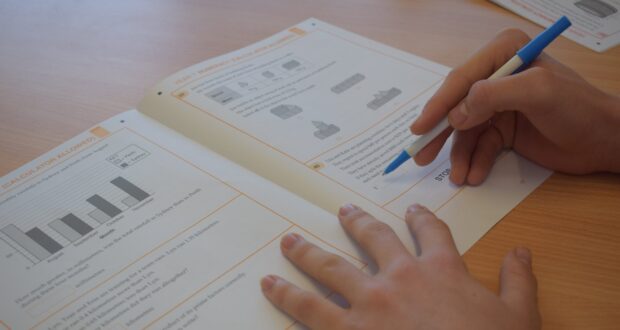Education authorities remain insistent that the National Assessment Program – Literacy and Numeracy (NAPLAN) tests are an effective tool and useful in tracking student learning, three years after a survey found teachers disagree.
This is the second year NAPLAN was held in term one instead of term two, and all results except writing will be released earlier than ever.
The Australian Curriculum, Assessment and Reporting Authority (ACARA) said this will make test results even more applicable and useful for teachers, as they will know which areas students need help with earlier in the year.
The 2021 Australian Education Union (AEU) State of Our Schools survey found 59 per cent of principals think NAPLAN makes no difference to student outcomes, and 62 per cent of teachers think the tests are an ineffective diagnostic tool for teachers.
Identifying knowledge gaps and preventing adverse learning outcomes is NAPLAN's reason for existing, but the same survey in 2020 found three quarters of teachers think NAPLAN is ineffective in measuring school comparison or performance.
In the 2020 survey, 85 per cent of respondent said the tests do not improve student outcomes, and 56 per cent said it is ineffective in helping to identify areas to focus to improve student outcomes.
Explicit teaching and standardised testing
Significantly improved NAPLAN results in disadvantaged schools, such as this one in western Sydney school, is thought to be part of the reason the NSW Department of Education announced that all NSW teachers will receive 'explicit instruction' training after the Easter holidays.
Finnish education researcher and teacher Michael Lawrence told Education Review he is concerned that explicit instruction might discourage deeper learning practices, and further shift teacher's focus to standardised test results.
His education research in Finland and Estonia have shown tests like NAPLAN can be more destructive than effective.
"We're almost saying, 'We're going to tell the kids the answers, they'll remember them. Then they'll do well on the exam and we'll say they're educated,'" he said.
"In Finland they use [explicit instruction] all the time, because that's how they would introduce the new topic, but they would never, ever stop at that point because they then want the students to understand how to apply that learning."
He also has concerns about the effect more explicit teaching will have on efforts to raise the status of the teaching profession.
"Direct instruction lesson can be taught almost by anybody if the lesson plan's done beforehand," he said.
"Why are we talking about this when the biggest issue is this teacher shortage? We should be trying to increase teacher autonomy, which is the only way to increase teacher respect.
"When we standardise everything, like NAPLAN, which is a really good way of controlling teachers, it also puts an incredible amount of control over the students.
"It takes away all their autonomy and the students just end up feeling like they're the meat in this data sandwich that's being created so ACARA can say they've got good NAPLAN results."
However, department secretary Murat Dizdar said any chance to improve declining literacy and numeracy results in students is an asset to teaching.
“The research is clear: explicit teaching accelerates student learning. Students who experience explicit teaching in year seven are on average four months ahead in their learning by year nine," he said.
“The reason I loved this practice so much as a teacher was because I found it did not discriminate.
"If you are a student who is struggling, or accelerating beyond your class level, explicit teaching will help you reach your potential."
Mr Lawrence said he wants to see a less prescriptive curriculum and more trust in teachers in the education system, where educators can make choices that best suit their individual students.
"If I'm taking music and I say, 'look, I know you really love jazz, but we need to go through country-western because I know that's what's on the exam,' I might give you a great grade on the exam, and you might never play your instrument again, because I've pushed you to play a bunch of old-fashioned country songs that you hate," he said.
"About three years ago, and I stopped because I realised the way that I was being forced to teach English was making my kids hate English. And I felt that English was something wonderful.
"In Finland, it's considered that you're a really poor teacher if you've got good grades for kids, but they don't enjoy the subject."
NSW teachers will receive 'explicit instruction' training during staff development days at the beginning of Term 2.
You can read more stories written by or featuring Michael Lawrence here.
Do you have an idea for a story?Email [email protected]
 Education Review The latest in education news
Education Review The latest in education news
